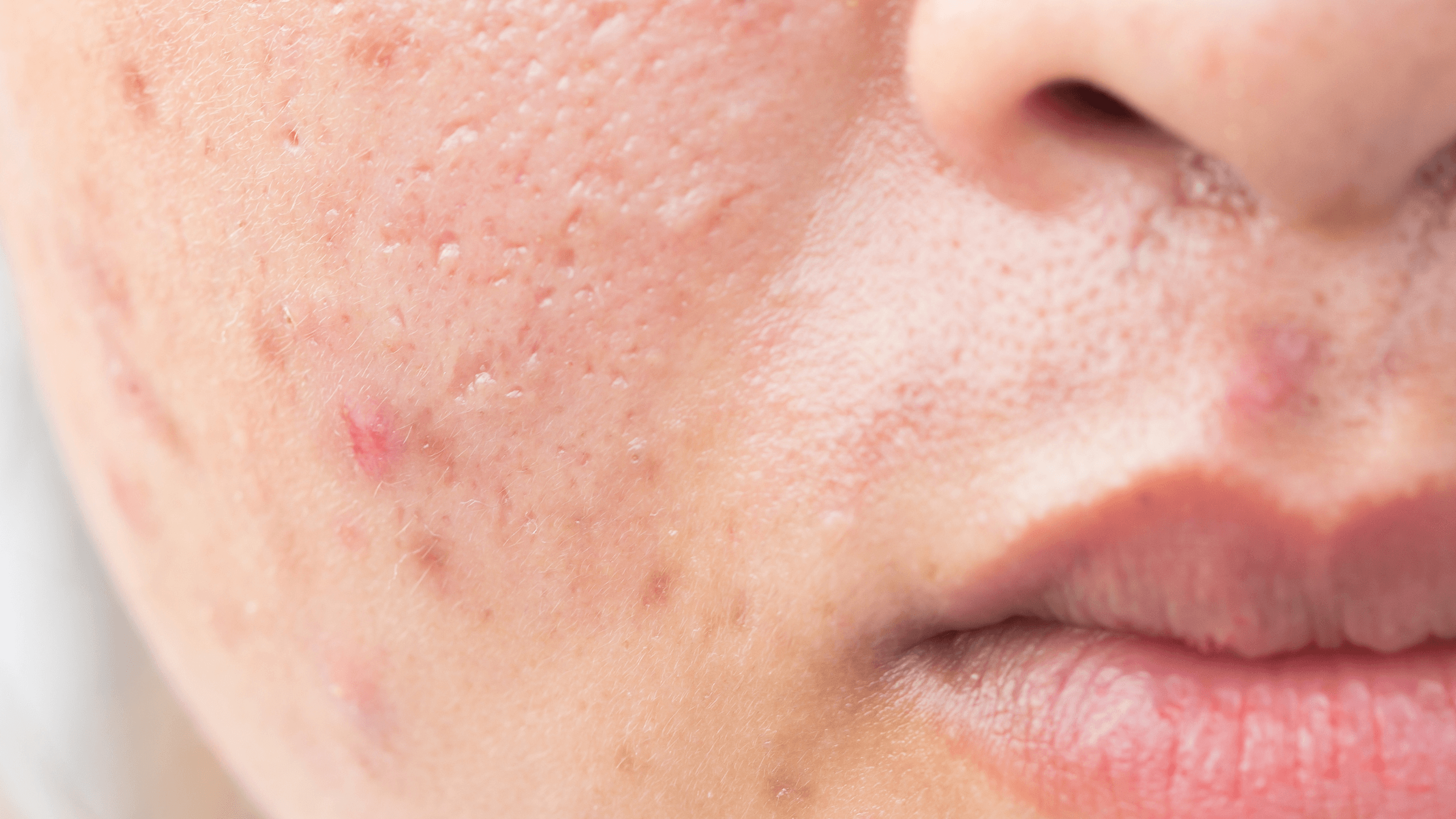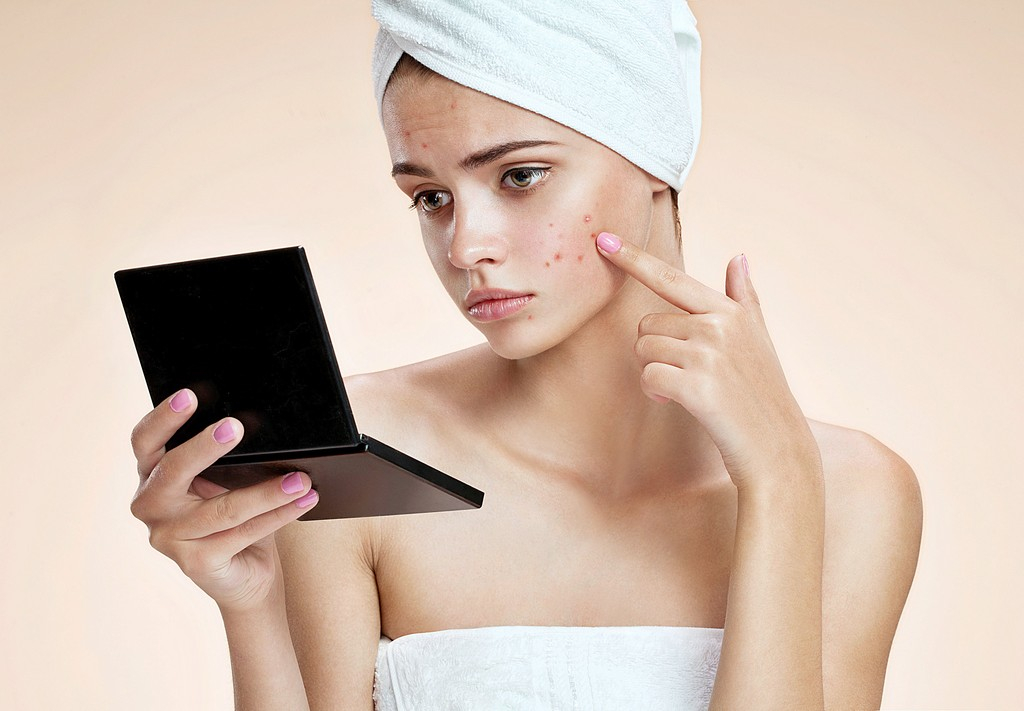Expert Guide: How To Treat And Prevent An Infected Pimple
Dealing with an infected pimple can be both frustrating and painful. Whether it’s a small bump or a larger, pus-filled lesion, infections can occur when bacteria enter the skin through a clogged pore. Treating an infected pimple requires a careful approach to avoid worsening the condition or causing scarring. In this article, we will explore the most effective strategies to manage and heal infected pimples, ensuring your skin remains healthy and clear.
Infected pimples are not just a cosmetic issue; they can lead to discomfort and, in some cases, more severe complications if left untreated. Understanding the root cause of the infection and following proper treatment steps is essential for recovery. This guide will provide you with actionable tips, backed by dermatological expertise, to help you address the problem effectively. Whether you’re looking for home remedies or professional advice, you’ll find everything you need here.
By the end of this article, you’ll know exactly what to do for an infected pimple, how to prevent future occurrences, and when to seek medical attention. Let’s dive in and explore the best practices for treating and healing infected pimples.
Read also:Unveiling The World Of Hd Hub4ucom Movies Your Ultimate Guide To Highquality Entertainment
What Are the Common Causes of an Infected Pimple?
Infected pimples typically result from bacterial infections, often caused by the Propionibacterium acnes bacteria. When a pore becomes clogged with oil, dead skin cells, and debris, it creates an ideal environment for bacteria to thrive. This can lead to inflammation, redness, and pus formation. Factors such as poor hygiene, hormonal changes, and improper skincare routines can also contribute to the development of infected pimples.
How Can You Identify an Infected Pimple?
Recognizing the signs of an infected pimple is crucial for timely intervention. Look out for symptoms such as increased redness, swelling, warmth, and pain around the affected area. Pus-filled lesions or those that feel hard to the touch may indicate a more severe infection. If you notice these signs, it’s important to take immediate action to prevent further complications.
What Should You Do If You Suspect an Infected Pimple?
The first step in treating an infected pimple is to avoid picking or popping it, as this can worsen the infection and lead to scarring. Instead, focus on keeping the area clean and applying over-the-counter treatments designed to reduce inflammation and kill bacteria. If the infection persists or worsens, consulting a dermatologist is recommended.
What Are the Best Home Remedies for Treating an Infected Pimple?
For mild cases of infected pimples, home remedies can be effective in promoting healing and reducing symptoms. Below are some tried-and-true methods:
- Warm Compress: Applying a warm compress to the affected area can help draw out pus and reduce swelling.
- Tea Tree Oil: Known for its antibacterial properties, tea tree oil can be diluted with a carrier oil and applied to the pimple to combat infection.
- Honey: Honey’s natural antimicrobial properties make it an excellent remedy for reducing inflammation and fighting bacteria.
- Aloe Vera: This soothing gel can help calm irritated skin and promote faster healing.
What Should You Include in Your Skincare Routine to Prevent Infected Pimples?
Maintaining a consistent skincare routine is key to preventing infected pimples. Focus on using gentle, non-comedogenic products that won’t clog your pores. Cleansing your face twice daily, exfoliating regularly, and moisturizing with a lightweight formula can all contribute to healthier skin. Additionally, avoid touching your face with dirty hands and change your pillowcases frequently to minimize bacteria exposure.
Can Over-the-Counter Treatments Help with Infected Pimples?
Yes, over-the-counter treatments containing ingredients like benzoyl peroxide, salicylic acid, or sulfur can be highly effective for treating infected pimples. These products work by reducing bacteria, unclogging pores, and calming inflammation. Follow the instructions carefully and discontinue use if irritation occurs.
Read also:Exploring The World Of Telugu Cinema Movie Rulez Com Telugu
When Should You Seek Medical Attention for an Infected Pimple?
In some cases, infected pimples may require professional treatment. If the pimple is large, painful, or shows signs of spreading infection, such as red streaks or fever, it’s important to see a dermatologist. They may prescribe antibiotics, topical creams, or other treatments to address the issue. Ignoring severe infections can lead to complications, so prompt action is essential.
What Can a Dermatologist Do for an Infected Pimple?
A dermatologist can provide targeted treatments for infected pimples, including:
- Drainage: A professional may drain the pimple under sterile conditions to prevent further infection.
- Prescription Medications: Antibiotics or topical treatments can be prescribed to combat bacteria and reduce inflammation.
- Laser Therapy: In some cases, laser treatments may be recommended to reduce scarring and improve skin texture.
What Are the Potential Risks of Ignoring an Infected Pimple?
Leaving an infected pimple untreated can lead to several complications, including scarring, increased inflammation, and the spread of infection to surrounding areas. In rare cases, severe infections may require hospitalization. To avoid these risks, it’s important to address the issue promptly and seek professional help if necessary.
What Are Some Preventive Measures for What to Do for an Infected Pimple?
Prevention is key to avoiding infected pimples in the future. Here are some tips to keep your skin healthy and clear:
- Maintain a consistent skincare routine.
- Wear sunscreen to protect against UV damage.
- Avoid using heavy makeup or skincare products that clog pores.
- Stay hydrated and follow a balanced diet rich in vitamins and minerals.
What Role Does Diet Play in Preventing Infected Pimples?
Your diet can significantly impact your skin health. Consuming foods high in antioxidants, omega-3 fatty acids, and vitamins can help reduce inflammation and promote clearer skin. Limiting processed foods, sugar, and dairy may also be beneficial for those prone to acne.
How Can Stress Contribute to Infected Pimples?
Stress can exacerbate acne by increasing hormone levels that lead to oil production and clogged pores. Practicing stress-reducing techniques such as meditation, yoga, or deep breathing exercises can help maintain healthier skin.
Conclusion: What to Do for an Infected Pimple
In summary, treating an infected pimple requires a combination of proper care, prevention, and, in some cases, professional intervention. By understanding the causes, recognizing the symptoms, and following the steps outlined in this guide, you can effectively manage and heal infected pimples. Remember to prioritize skincare, maintain a healthy lifestyle, and seek medical advice when needed. With these strategies, you’ll be on your way to clearer, healthier skin.
Table of Contents
- What Are the Common Causes of an Infected Pimple?
- How Can You Identify an Infected Pimple?
- What Should You Do If You Suspect an Infected Pimple?
- What Are the Best Home Remedies for Treating an Infected Pimple?
- What Should You Include in Your Skincare Routine to Prevent Infected Pimples?
- Can Over-the-Counter Treatments Help with Infected Pimples?
- When Should You Seek Medical Attention for an Infected Pimple?
- What Can a Dermatologist Do for an Infected Pimple?
- What Are the Potential Risks of Ignoring an Infected Pimple?
- What Are Some Preventive Measures for What to Do for an Infected Pimple?
Article Recommendations


